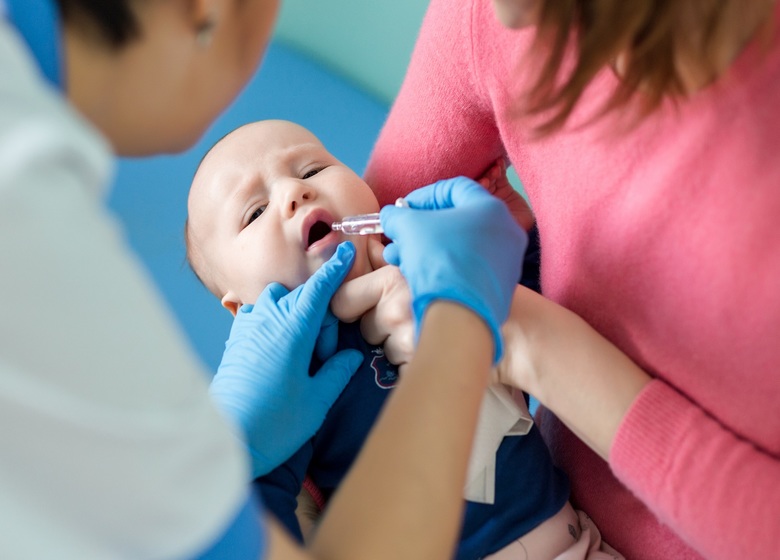All parents attempt to do their utmost to ensure the overall health of their children. One of the best means of implementing the immunization plan to avoid vaccine infections is to keep them healthy. In various parts of the world, the schedule for vaccines will be different, depending on the susceptibility to specific types of pathogens, illnesses, and other illnesses in this region of the world. Parents must closely track their child’s immunization schedule to avoid deadly diseases. Occasionally, however, regardless of their best-known reasons, parents can postpone or miss certain vaccines. Well-why do parents choose delays and numerous other such matters are addressed here-if you want to know, why your child needs to be vaccinated in time, the postponement could have some complications? Read on to know the possible risks of delaying a child’s immunization.
Why Parents Delay Child’s Vaccination?
Vaccines can help prevent fatal infections and diseases in babies, and if so why do some parents postpone them? Okay, some of the reasons why parents choose late vaccination often are:

1. Kids With Lung Infection or Asthma
It is particularly important to offer flu shots to children with lung infections or asthma because of the symptoms that exacerbate these conditions. But parents can avoid the nasal flu vaccine, as this process involves weakened live viruses compared with the dead virus shot.
2. If the Child Is HIV Positive
Children who are HIV positive will get vaccines as long as they are not poorly affected by their immune system. Nonetheless, parents need to take care of the HIV-positive child’s T-cell limit, which ensures that live virus drugs are not given to children until and unless it is in the appropriate range.
3. When Child Is Undergoing Chemotherapy
Chemotherapy children have compromised immune systems, and so the use of live virus vaccines for these children might not be feasible.
4. If the kid is on steroid treatment
Some health conditions like asthma require a high dose of steroids, usually for a short period, to manage the disease. The child must wait a few weeks before the steroid effects are dry because steroids will weaken the immune system of the child to fight viral diseases. Nevertheless, vaccines will not be impeded by medications with low dosages of steroids.
5. The Safety of the Vaccine
The efficacy of your child’s vaccine can be doubtful among most parents. In the event that the child has other types of diseases, such as asthma, cold, or other medical conditions, that concern will prevail.
6. Reaction to the Previous Vaccine
Babies may sometimes develop a vaccine allergic reaction. It may make parents susceptible to this form or part of the vaccine in order to avoid the previous incident.
7. When Child Has a High Fever
Parents will also delay vaccines if their child has 101 grades or high fever. It can be difficult to decide whether the fever is due to the normal infection or the side effects of the vaccine.
8. When Child Has an Egg Allergy
The measles and flu vaccines are formulated in eggshells. These vaccines can be administered absolutely safely because the doctor can consider the allergy factor and administer it in smaller doses to avoid complications. However, parents will also delay a vaccine to prevent their children’s allergic reactions.

Possible Risks of Delaying a Child’s Immunization
Immunization is the best chance for your child to help prevent preventable diseases and fight life-threatening diseases. From infancy to adolescence, parents should take care to keep a checklist on a child’s immunization schedule when the vaccine schedule is sometimes delayed may pose potential risks not only to your child but to those around him or her. Some possible risks of delaying a child’s immunization schedule:
1. The elevated risk to children
The prescribed immunization plan for your child is intended to ensure that children at their most vulnerable stage of life have maximum immunity. Any delay may put your child at an increased risk of developing certain fatal diseases. There are some factors in a child that can develop:
- Meningitis can cause permanent damage to the brain or deafness.
- The polio that can induce persistent paralysis
- Measles that can in some cases lead to brain swelling and even death.
2. Elevated risks to others
Failure to immunize your child can not only increase your child’s health risk but can also pose risks to those around you such as:
- Newborn babies that have not been vaccinated enough times.
- Elderly people who are at risk of other illnesses to experience a complication.
- Those who have poor immune systems due to medications or other health issues
3. Other Risks
Here are some other risks your child can face:
- The vaccine is the only prevention for Tetanus or Lockjaw. It is due to the absence of this condition from one condition to the next, which in this situation means that herd immunity does not function. In the event of not getting a child vaccinated, the probability is higher. A minor cut or wound may be fatal.
- Your child is at an elevated risk of contracting vaccine-preventable diseases if he travels to other nations.
- When vaccine-preventable diseases are transmitted to the population, the exposure of your child will have to be reduced and the child will have to avoid going for a few weeks to school or until the epidemic ends.
These are possible risks of delaying a child’s immunization.
Having preventable -disease vaccines is one of the safest ways to protect your child from those dangerous infections and diseases. Before making the decision to postpone the immunization schedule, speak with your health care practitioner.
Also Read: Different Types Of Vaccination For Childhood Diseases












